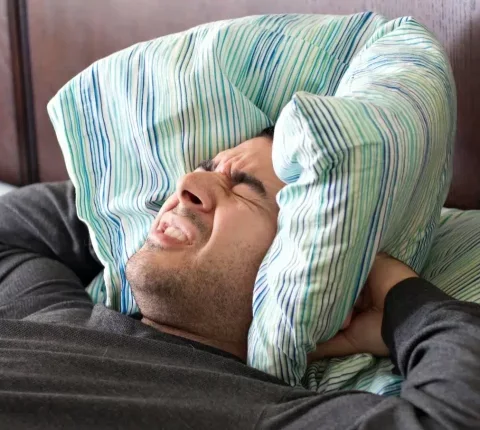Trouble sleeping? This might be why
Sleep deprivation can have serious consequences. So when the Sleep Health Foundation discovered 33-45% of Australian adults are sleeping poorly – with a quarter of all adults (26%) using the internet every night just before bed – they realised Australia was in the grip of a sleepiness epidemic. And with sleep deprivation on the rise, the community is at even more risk of poor work performance, road accidents and severe health problems.
It’s time to make sleep a national health priority. We need to take a serious look at what is affecting our sleep health, and what we can do to ensure we always get a good night’s rest.
More screens, less sleep
The number of Australians reporting poor sleep has drastically increased, and with our lifestyles being ever more reliant on technology – there is evidence to suggest the two are linked. Multiple studies from all over the world have shown the negative impacts of increased screen-time on our sleep, as more and more medical professionals stress the urgency of taking our sleep seriously.
When we look at screens, we are exposed to blue-light that confuses our body clock. These blue wavelengths mimic sunlight and suppress our melatonin, tricking our circadian rhythm into believing it’s daytime – even if it’s the dead of night. And as more Australians are using technology after sundown, our sleep is paying the price.
Research shows serious risks
The negative health impacts of sleep deprivation are well documented, with poor sleep linked to a range of serious health problems from obesity, diabetes, and cardiovascular disease through to depression, anxiety and poor immune function. Even worse, Harvard experts have discovered adults who report sleeping 5 hours or less on a regular basis, have a 15% increased risk of death from all of these causes.
But it’s not just health that suffers – sleep problems have a major impact on work performance, and are a large contributor to road accidents.
Preliminary research by Harvard (among many others) has also linked night time exposure to blue light with several types of cancer, noticeably breast and prostate. And although they are yet to pinpoint the exact reason for this association, one thing is clear: blue light exposure and lack of sleep are related, and severe health issues are symptoms of both.
Rest easy
By this point, you’re probably terrified of your devices – but you don’t have to be. There are many simple ways to help yourself get a better night sleep, and increase your overall wellbeing. The Sleep Health Foundation recommends switching off your devices an hour before bed, establishing a set sleep routine and avoiding alcohol and caffeine.
Making sure you have a well-contructed mattress is also key to a good nights rest. Research has indicated that a good mattress will help accomplish three key goals: it will help you fall asleep more quickly; it will keep you asleep longer and it will enable you to wake up feeling refreshed. Koala have engineered a mattress to help meet all three of these goals.
Also, limiting your exposure to blue-light does not necessarily mean you have to decrease your screen time. Now that technology plays such an intrinsic role in our lives, not only is it incredibly difficult to lessen our use of devices – it’s simply not realistic.
That’s why many medical professionals are recommending blue-light filter glasses – such as Baxter Blue – to anyone having trouble sleeping. Baxter Blue eyewear is specially designed to filter out 50% of the most harmful blue-light, counteracting the suppression of melatonin and keeping your circadian rhythm well balanced. The glasses also reduce glare by 99%, and increase contrast – meaning your eyes will be rested, without strain. The glasses are designed with clear lenses, and come in a wide range of stylish frames for both adults and children to choose from. So you can enjoy your favourite devices – and sleep well.
 Health & Habits
Health & Habits  Health & Habits
Health & Habits Have a question
Follow us